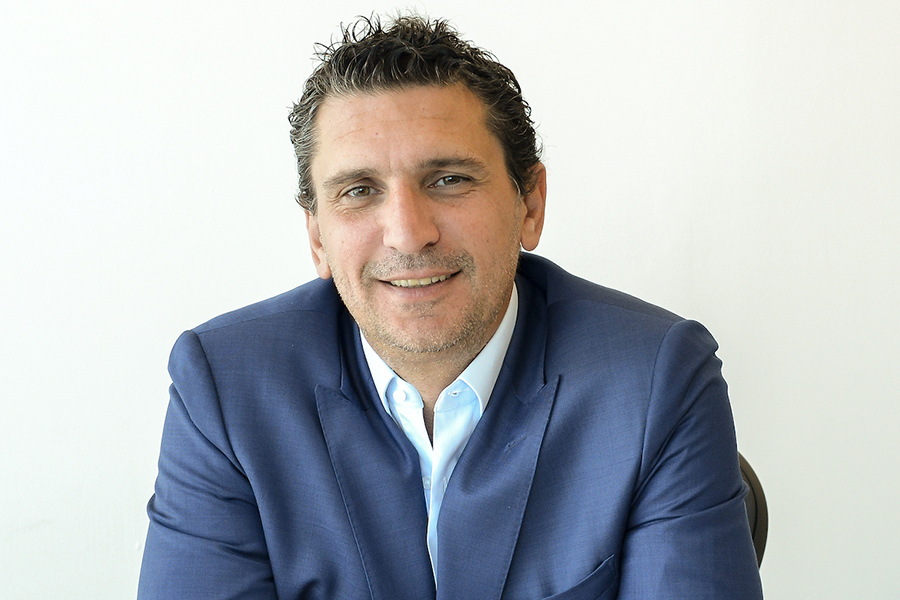
Abdul Kader Saadi, founder & managing director, Glee Hospitality Solutions
“We have to be positive to see the light at the end of the tunnel,” states Abdul Kader Saadi, founder & managing director, Glee Hospitality Solutions, which is celebrating its 10th anniversary in 2020. “Summer isn’t a great period for the F&B industry, irrespective of the current situation. But people are starting to go out again. Traffic has picked up in the bigger shopping malls, although not comparable to the pre-COVID levels. For our concepts, August was better than expected, as a lot of residents didn’t travel. We are hoping for things to gradually normalise over the next few months if everything goes well.”
Saadi is prioritising goals for 2021. “We will focus on projects that got impacted due to the COVID-19 crisis,” he shares. “We plan to push ahead with our expansion plans in Saudi Arabia, in particular, and the UAE. We are also exploring the Egypt market.”
Notwithstanding his positive outlook, Saadi agrees that the F&B market was already soft even before the pandemic hit the region, driven by a combination of factors – a slowdown in the economy, change in consumer habits, the culture of promotions and high commission-driven delivery business. Add to that, the issue of F&B oversupply and therein stiff competition to gain a slice of the pie.
“These factors have impacted the growth of F&B operators. The discount culture has built up over the past seven-eight years, which got accelerated during the 2015-17 period. Consumers are now driven by promotions, which is negatively impacting the ecosystem. While many restaurants began offering promotions as a desperate measure to gain footfall and boost orders, this has hurt the F&B operators. Promotions don’t bring us return on investments; it also weakens cashflow.”
As a result, the F&B industry feels the heat, as consumers have come to expect the ‘buy one, get one free / buy one, get one at half price’ promotions and discounts. Oversupply exacerbates the situation further, as restaurants offer freebies during ‘happy hours’ and ‘special nights’ to bring in the footfall, sometimes without realising that real activation may be far from the horizon, especially in a post-COVID environment.
“Promotions and discounts on aggregator platforms don’t create brand loyalty. Actually, brand loyalty is driven by great customer service and high-quality food, therein offering value for money,” Saadi points out. “In the past few months, certain F&B operators might have corrected pricing, which is better than getting on a promotional drive.”
Also read: Shifts in the F&B industry post-pandemic
“On the bright side, however, since 2019 rents have undergone correction, which is why a lot of our projects signed for 2019-20 has been able to survive the storm,” he says. “Slowly, the situation is improving, especially restaurants at the higher end of the market and those with a loyal customer base are regaining footfall. Having said that, a section of diners that would eat out up to four times a week has probably reduced it to once-or-twice a week. One of our new projects in Abu Dhabi, Morsel is doing quite well, so is Turf Café. We have also reopened Parlour Café in Dubai.”
COVID-19 has also prompted people to focus on health and wellness by eating healthy. This has boosted the performance of healthy F&B concepts such as one of Glee’s brands The Broth Lab, part of The Roost. “The pandemic has, indeed, shone a light on eating healthy and broth being super healthy has gained traction. Recently, we have signed a commercial deal to offer products from The Broth Lab at Carrefour in the UAE, starting October,” Saadi shares. “We are also working on two dark kitchen concepts in Dubai. Overall, we have to be positive for the F&B industry to regain momentum.”
For all the latest retail news from the Middle East, follow us on Twitter and LinkedIn, like us on Facebook and subscribe to our YouTube page.